第112章 CHAPTER XLV(2)
Here is something else that I have seen. I have seen a family of six in one room. Of these, four were brothers and sisters, all within, none over, their teens. There were three beds between the six. When I came upon them they were out of work, - the young ones in bed to keep warm. I took them for very young married couples. It was the Scripture reader who undeceived me. This is not the exception to the rule, look you, but the rule itself. How will you deal with it? It is with Nature, immoral Nature and her heedless instincts that you have to deal. With what kind of fork will you expel her? It is with Nature's wretched children, the BETES HUMAINES, Quos venerem incertam rapientes more ferarum, that your account lies. Will they cease to listen to her maddening whispers: 'Unissez-vous, multipliez, il n'est d'autre loi, d'autre but, que l'amour?' What care they for her aside - 'Et durez apres, si vous le pouvez; cela ne me regarde plus'? It doesn't regard them either.
The infallible panacea, so the 'Progressive' tell us, is education - lessons on the piano, perhaps? Doctor Malthus would be more to the purpose; but how shall we administer his prescriptions? One thing we might try to teach to advantage, and that is the elementary principles of hygiene. I am heart and soul with the Progressive as to the ultimate remedial powers of education. Moral advancement depends absolutely on the humanising influences of intellectual advancement. The foreseeing of consequences is a question of intelligence.
And the appreciation of consequences which follow is the basis of morality. But we must not begin at the wrong end.
The true foundation and condition of intellectual and moral progress postulates material and physical improvement. The growth of artificial wants is as much the cause as the effect of civilisation: they proceed PARI PASSU. A taste of comfort begets a love of comfort. And this kind of love militates, not impotently, against the other; for self-interest is a persuasive counsellor, and gets a hearing when the blood is cool. Life must be more than possible, it must be endurable; man must have some leisure, some repose, before his brain-needs have a chance with those of his belly. He must have a coat to his back before he can stick a rose in its button-hole. The worst of it is, he begins - in Bethnal Green at least - with the rose-bud; and indulges, poor devil! in a luxury which is just the most expensive, and - in our Bethnal Greens - the most suicidal he could resort to.
There was one method I adopted with a show of temporary success now and then. It frequently happens that a man succumbs to difficulties for which he is not responsible, and which timely aid may enable him to overcome. An artisan may have to pawn or sell the tools by which he earns his living.
The redemption of these, if the man is good for anything, will often set him on his legs. Thus, for example, I found a cobbler one day surrounded by a starving family. His story was common enough, severe illness being the burden of it. He was an intelligent little fellow, and, as far as one could judge, full of good intentions. His wife seemed devoted to him, and this was the best of vouchers. 'If he had but a shilling or two to redeem his tools, and buy two or three old cast-off shoes in the rag-market which he could patch up and sell, he wouldn't ask anyone for a copper.'